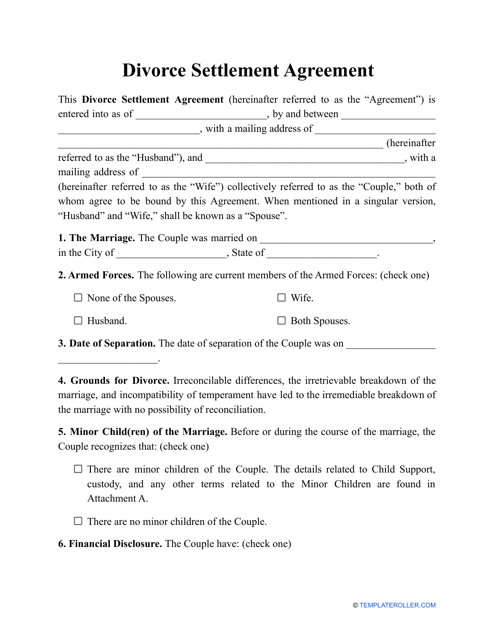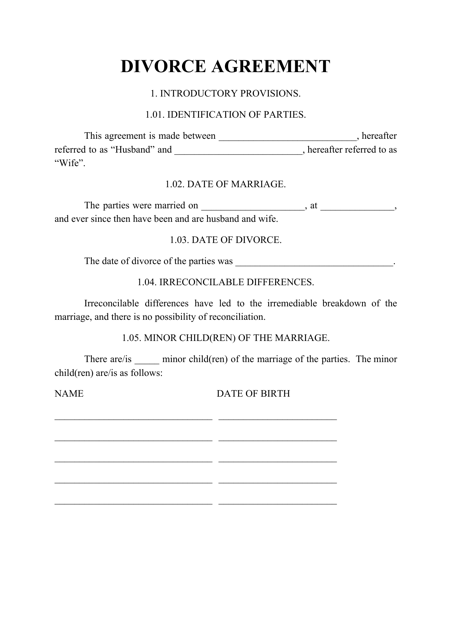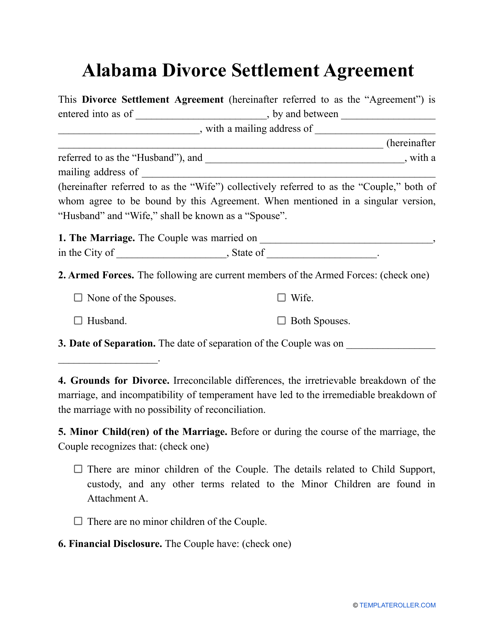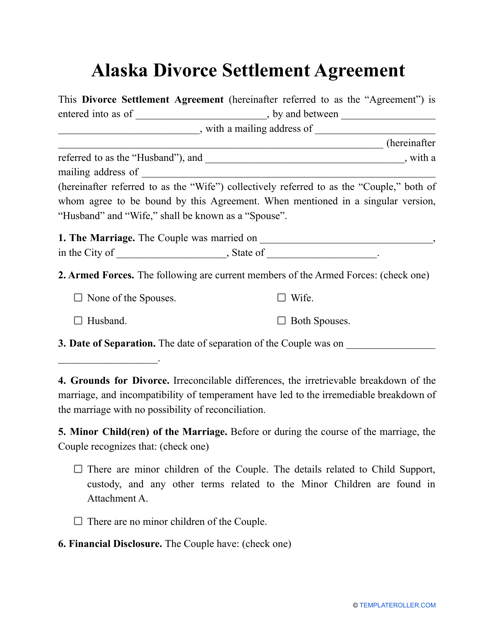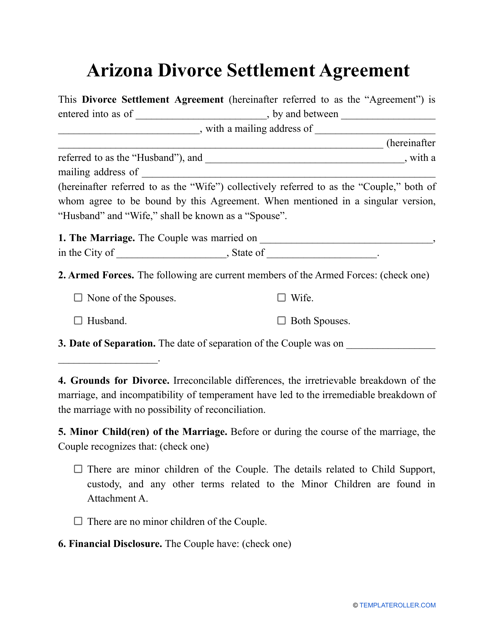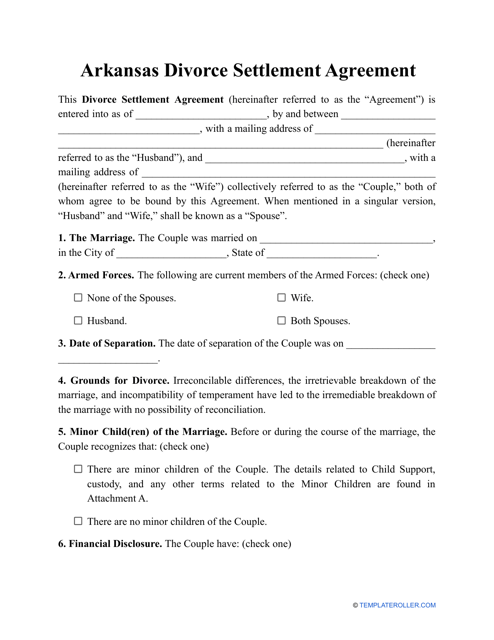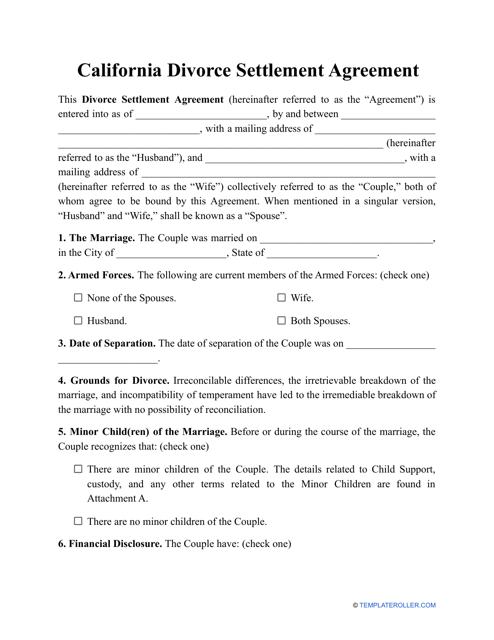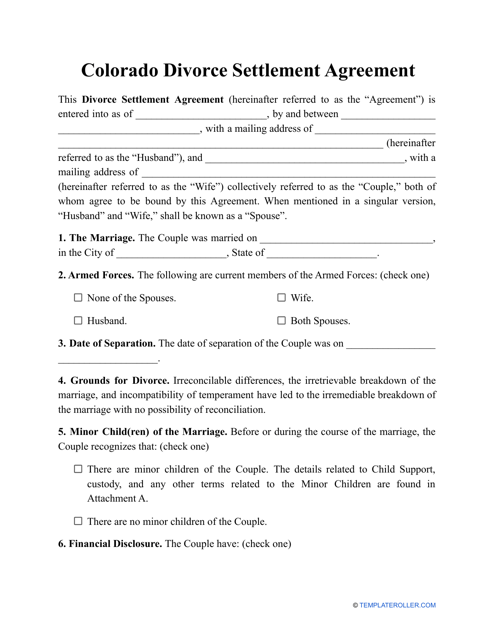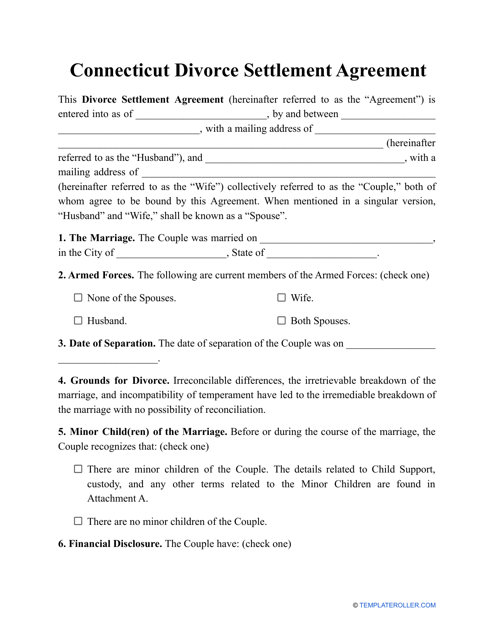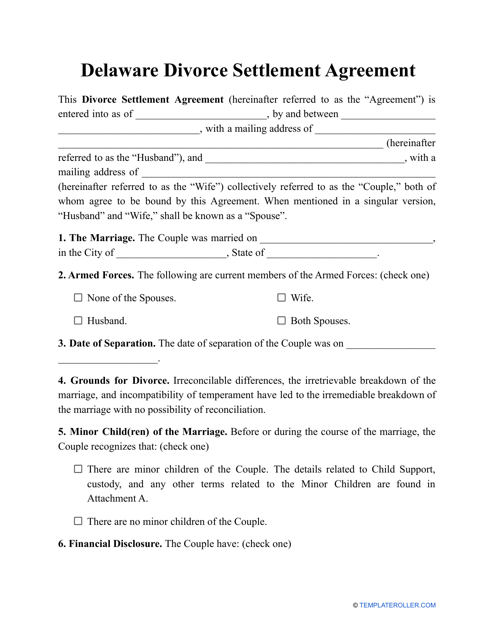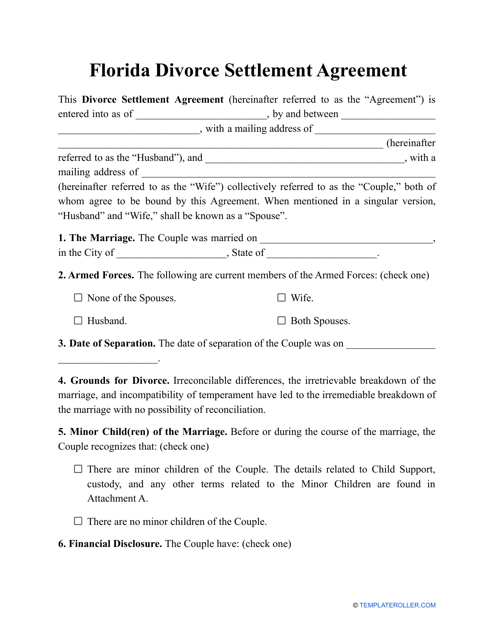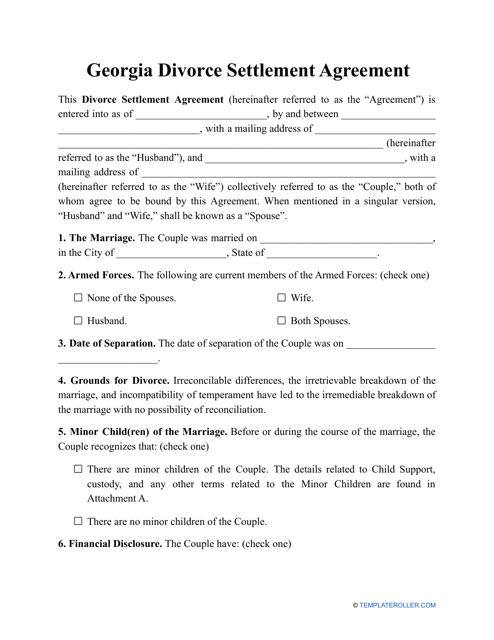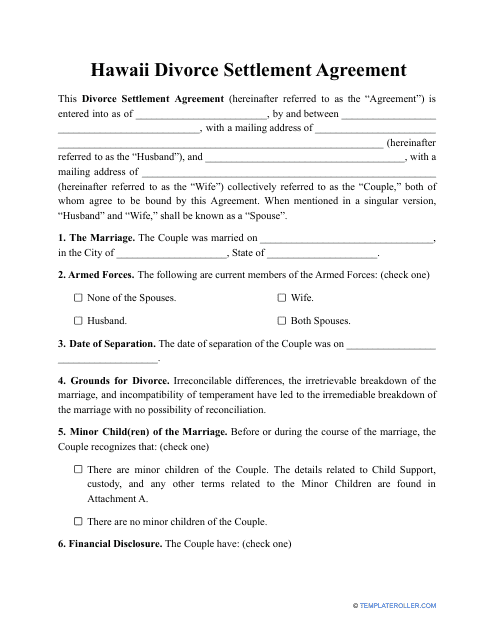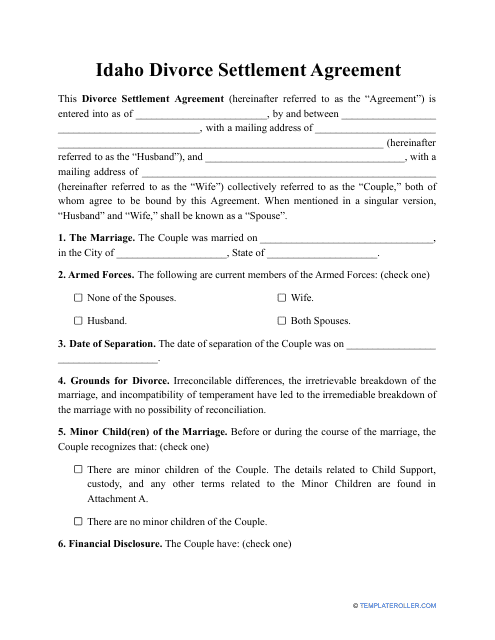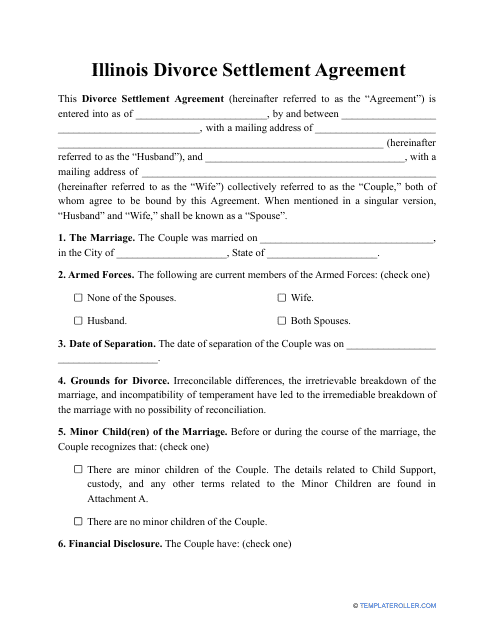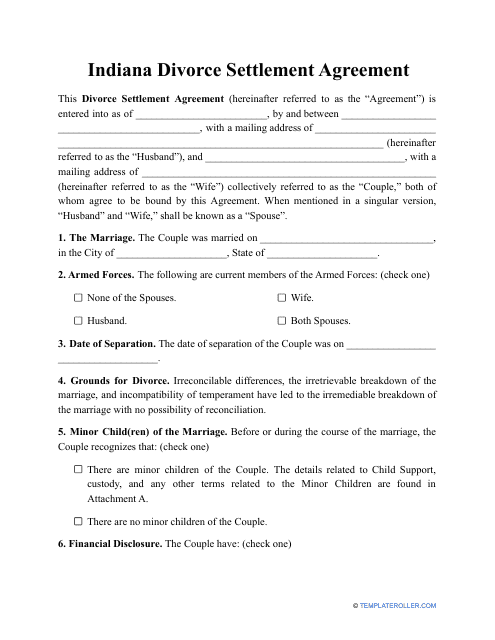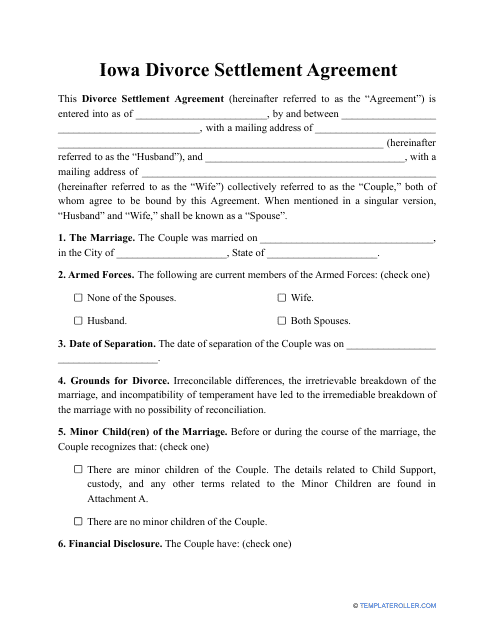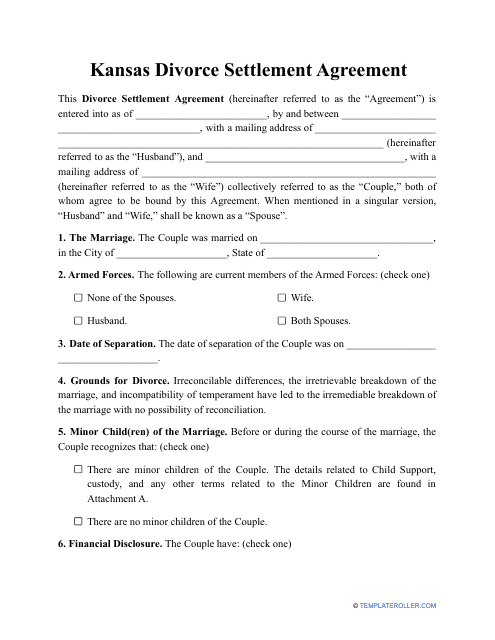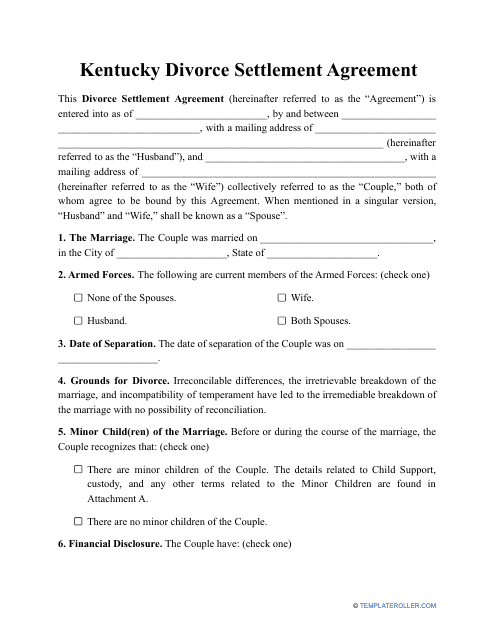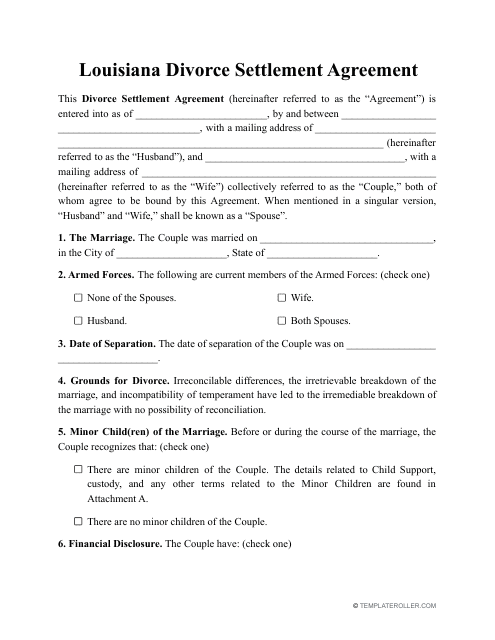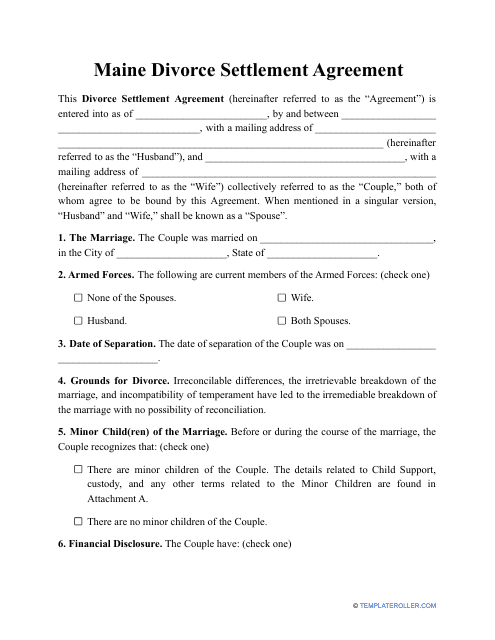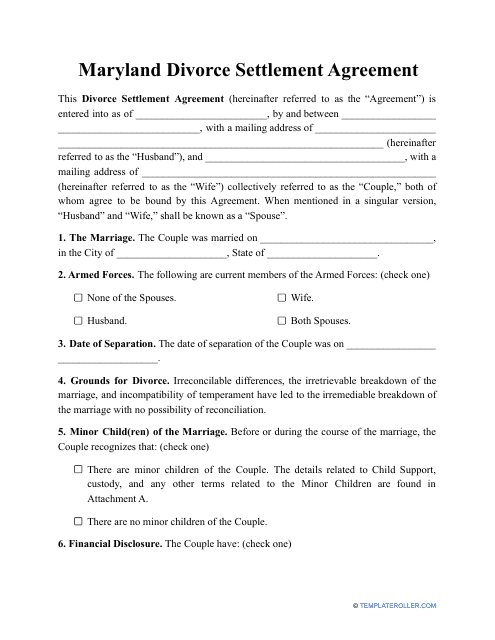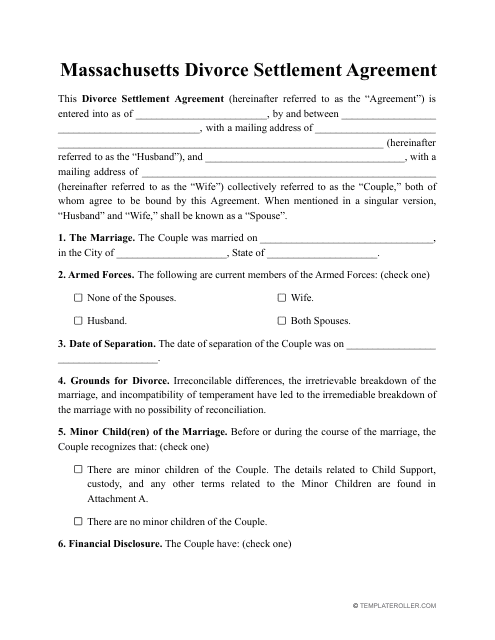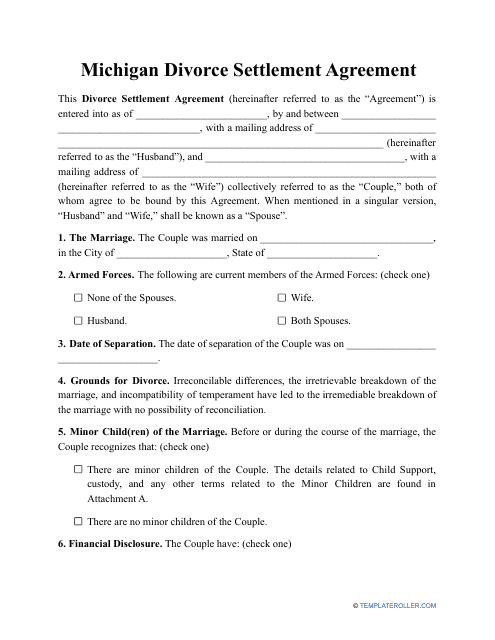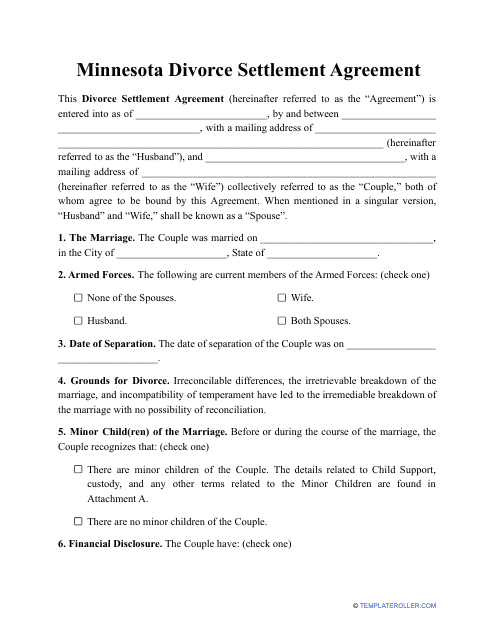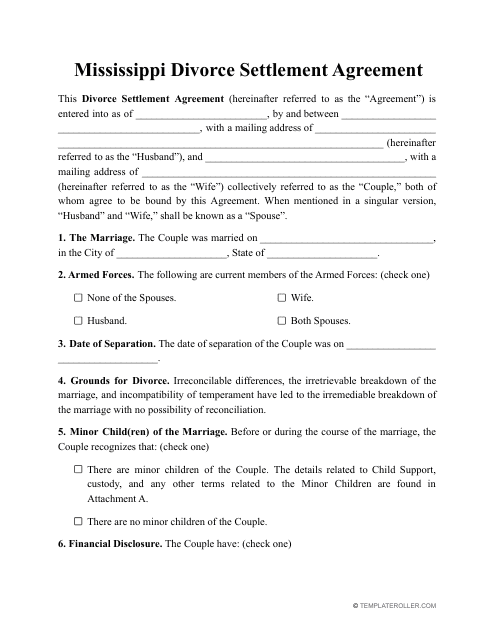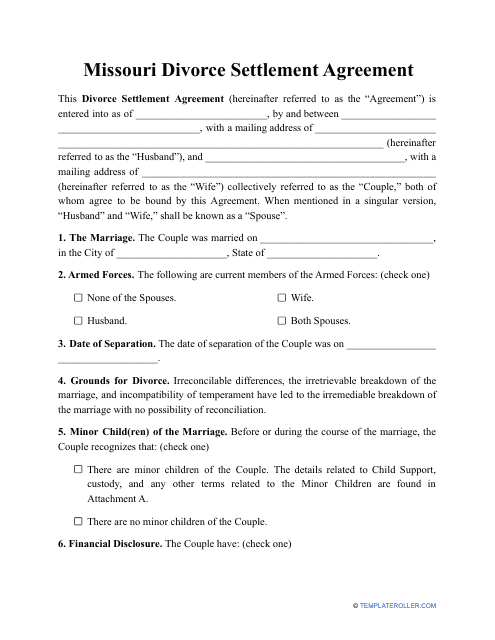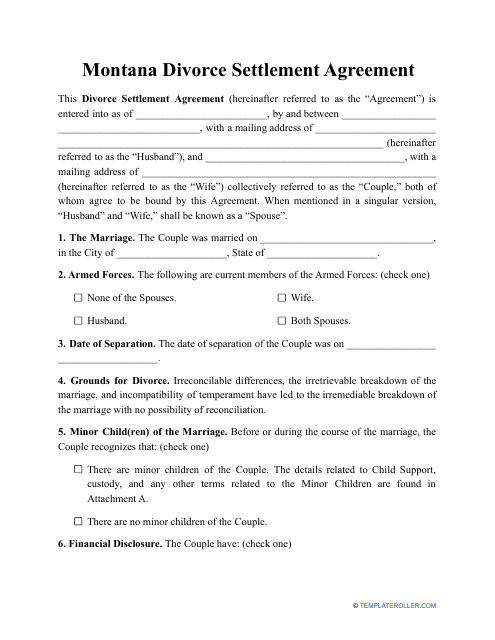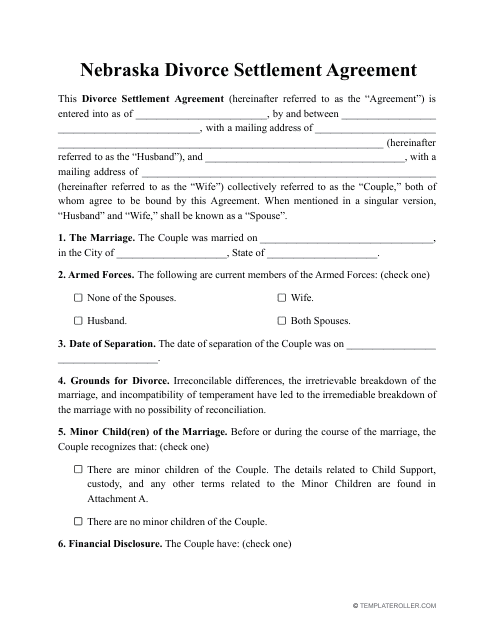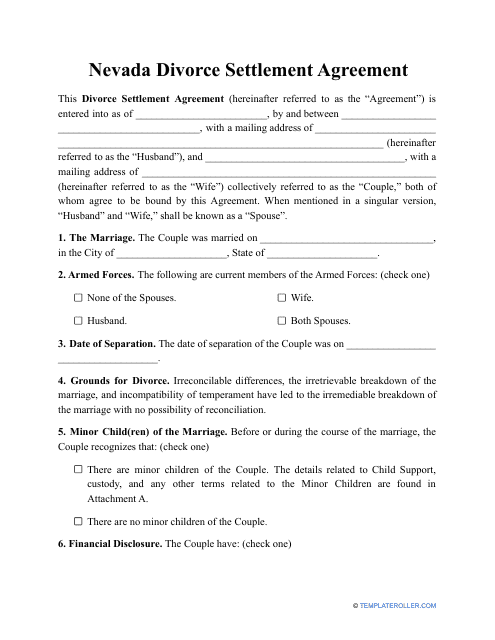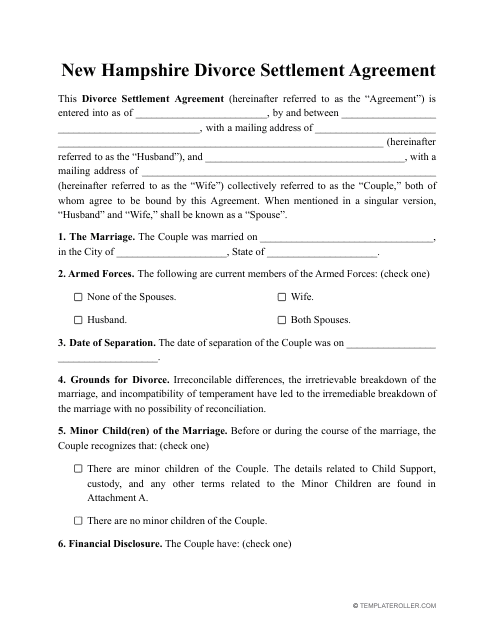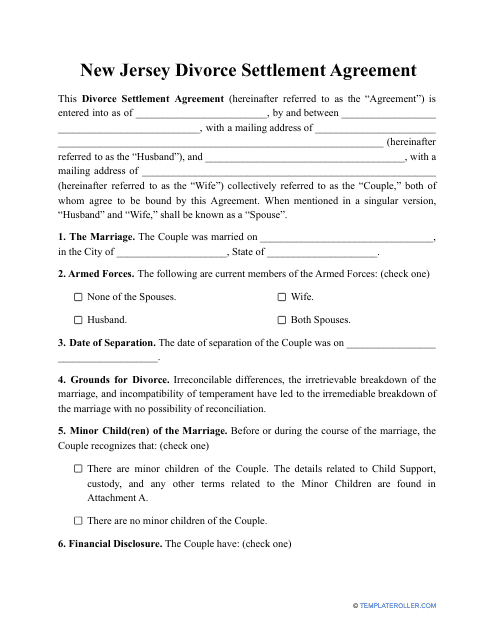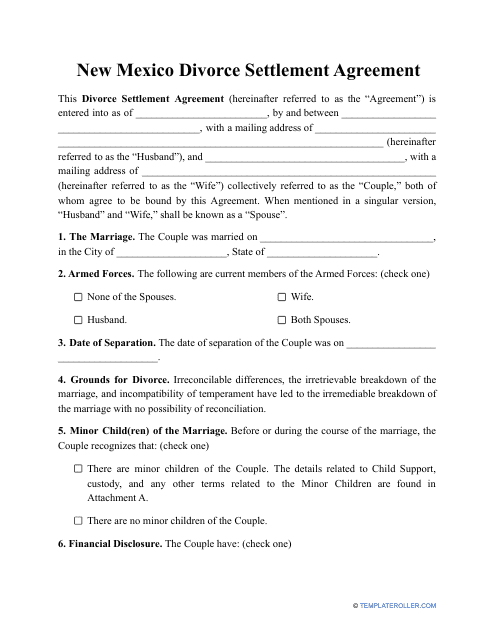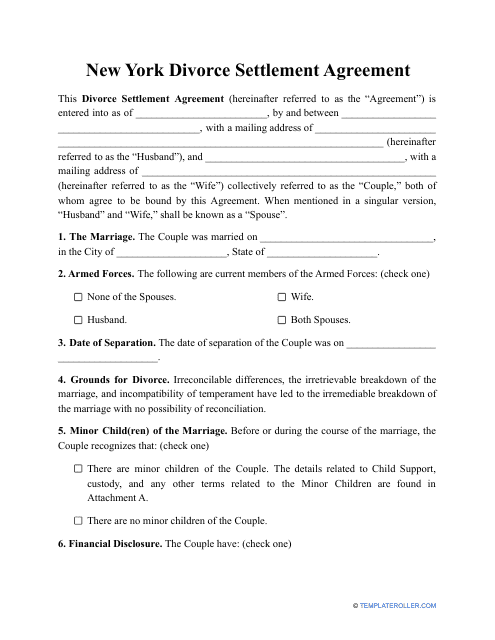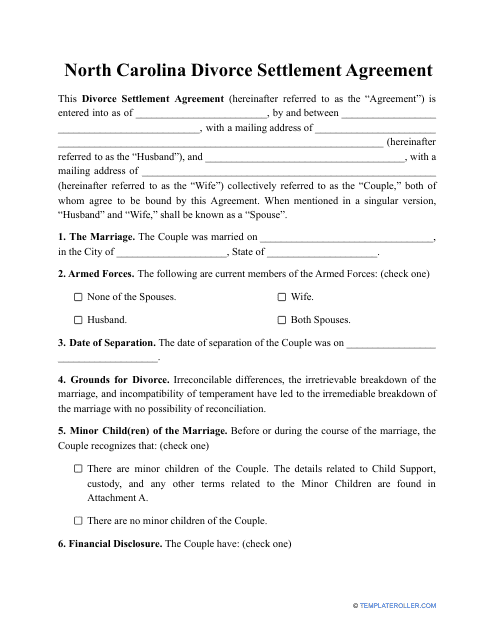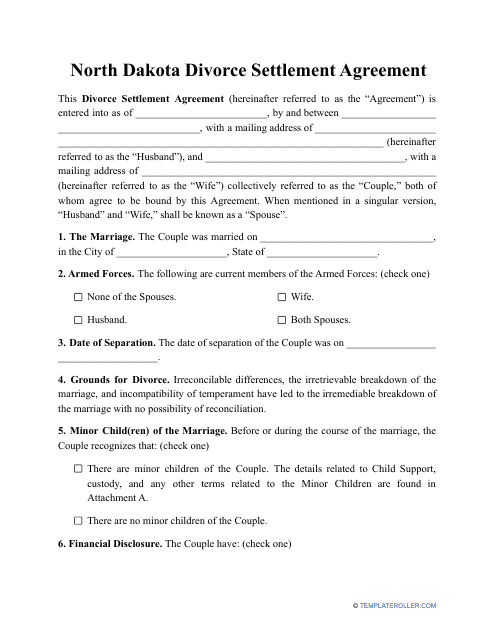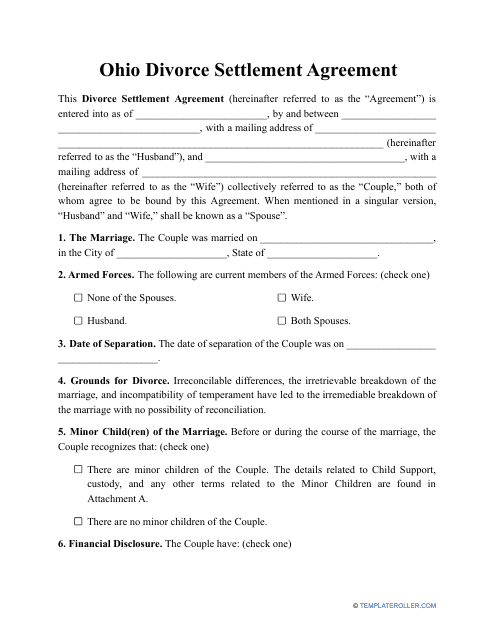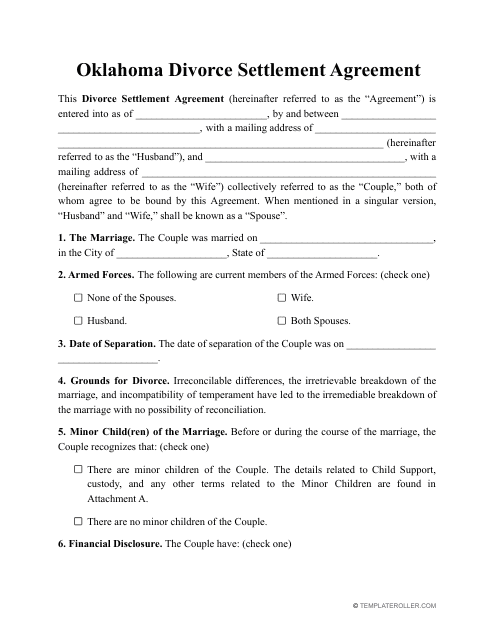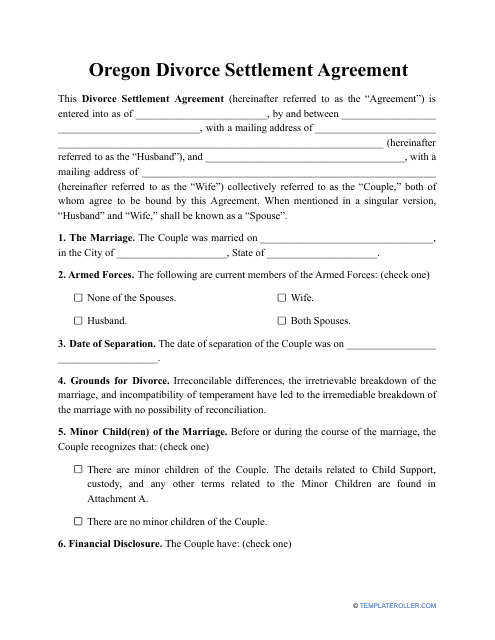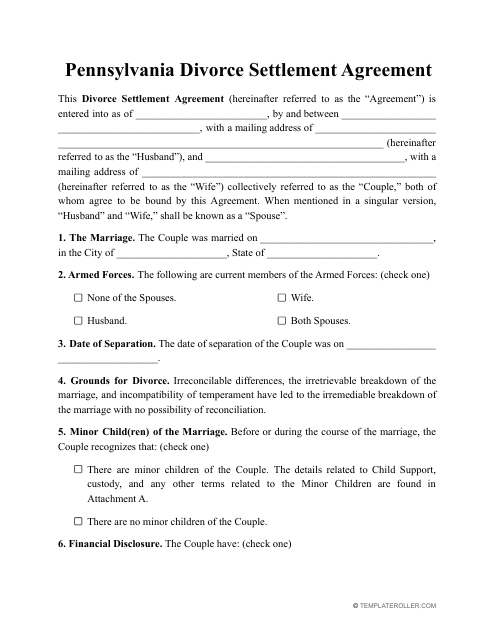Divorce Agreement Templates by State
What Is a Divorce Agreement?
A Divorce Agreement is a contractual document that determines the rights of the spouses to be divorced, their responsibilities in regards to property, alimony (spousal support), child support, custody of the children, and access (visitation rights). The main purpose of the document is to memorialize on paper every aspect that has been agreed upon verbally.
Alternate Names:
- Divorce Settlement Agreement;
- Marital Settlement Agreement;
- Divorce Decree.
Our Divorce Agreement templates available below outline some of the most typical issues and terms of separation and divorce. With the help of this template, you can easily create an agreement that will either serve as a temporary contract, or as a starting point that will be later incorporated into your legal agreement.
This is a generic non-state-specific document that individuals can use when they want to settle the conditions of their divorce.
The agreement can be signed before or after you file for divorce. Once signed and notarized, these agreements become legally binding contracts; unlike non-binding contracts (for example, oral contracts), they are hard to change or cancel in court. Some couples choose to use the services of a mediator. When a mediation agreement is signed, it is submitted to the judge and incorporated into your divorce decree shortly after. It now has the same binding power as your marital settlement agreement.
Divorce Settlement Agreement Templates by State
What to Include in a Divorce Agreement?
If you are lucky and able to communicate you can reach a mutual consent Divorce Agreement. This will allow you to avoid a lot of stress during a painful and costly divorce process. Although divorce is rarely enjoyable, and no pre-made documents can be straightforward and effortless, templates make the procedure better structured. There may be lots of helpful tips or ideas you have not thought of:
- Talk with a lawyer to get informed on the modalities of the child custody, both physical and legal custody;
- Division of marital property and debts can be affected by the child custody, so it’s important to know your state law on the matter;
- If you or your ex-spouse live in one of the community property states, you may not be eligible for alimony. Do check with a lawyer about the amount of money and duration you can count on.
Keep in mind, that all questions regarding child support are off the table. You may not negotiate, give up the support for your children, deduct or change the amount owed to your children according to the state requirements. Executing your final Divorce Agreement is uncomplicated. If you are not on speaking terms or live far apart, you can sign the document in front of a notary, mail, email or fax it to your ex, who in turn will have to sign their copy in front of their notary.
Haven't found the template you're looking for? Take a look at the related templates below:
Documents:
52
This document is a template used to establish an agreement between two individuals who are getting divorced. It outlines the terms and conditions for the division of assets, child custody and support, and other related matters.
This is a generic non-state-specific document that individuals can use when they want to settle the conditions of their divorce.
If you are a resident of Alabama and want to file for divorce, you will need to download and fill in this type of template.
This is an agreement used in Alaska that is created and signed during the divorce process by both former spouses.
An individual or couple undergoing a divorce in Arizona may use this template to document any agreements made between two former spouses.
This template is used in Arkansas during a divorce and it aims to document in writing any agreements formed between two spouses which outlines the responsibilities and obligations that each party makes.
This template is needed in California to record the arrangements made by divorcing spouses to resolve issues before and after their marriage is over.
If you are a resident of Colorado and want to file for divorce, you will need to download and fill in this type of template.
This is a document that is used in Connecticut and drafted and signed after a divorce has been finalized by two former partners.
If you are a resident of Delaware and have decided to file for a divorce, you will require this type of template to help complete the process.
This is a written statement used in Florida and approved by the spouses that seek to outline the conditions of their divorce and other matters important before their official separation and after.
This is a written contract used in Hawaii that determines the terms and conditions of the formal divorce of 2 spouses.
This is a legally binding contract used in Illinois and signed by a couple that is planning to divorce.
A married couple living in Indiana that is planning to divorce may use this template to help iron out the details of their divorce.
When undergoing a divorce in Iowa, you may be required to file this template as part of the documents required by the District Court in your local county.
This is an agreement that is used in Kansas and signed after a divorce has been filed in the appropriate court.
This is an agreement used in Kentucky that is created and signed during the divorce process by both former spouses.
This is a legal agreement used in Louisiana that details any settlement questions concerning the divorce process by former spouses.
If you are a resident of Maine and want to file for divorce, you will need to download and fill in this type of template.
Residents of Maryland may use this legal agreement during the divorce process and needs to be filed at the appropriate court.
This is an agreement used in Massachusetts that is created and signed during the divorce process by both former spouses.
When undergoing a divorce in Michigan, you will require this type of template to help lay put the terms and conditions of the divorce.
This template is needed in Minnesota during a divorce and the purpose of the agreement serves to record all arrangements created between both parties undergoing divorce.
This is a legal agreement used in Mississippi that describes information concerning settlement agreements during the divorce process.
This template is used in Missouri and is a legally enforceable statement completed by divorcing spouses to find a solution to various issues occurring as a result of their upcoming permanent separation.
This is a formal document used in Montana to amicably resolve the main issues that will inevitably occur as a result of a divorce.
This is an agreement used in Nebraska that is created and signed during the divorce process by both former spouses.
This document is a legally binding contract used in Nevada and signed by the spouses that wish to resolve all the issues arising from their upcoming separation.
If you are a resident of New Hampshire and want to file for divorce, you will need to download and fill in this type of template.
Residents of New Jersey may use this legal template to outline the details regarding settlement agreements made by a couple during the divorce process.
When undergoing a divorce in New Mexico, you will need to file this type of template at the District Court in your local county.
This is an agreement used in New York that is created and signed during the divorce process by both former spouses.
This is a legal document used in North Carolina that is constructed and signed by two former partners that are going through a divorce process.
This is a legally enforceable document used in North Dakota and prepared by spouses who seek to outline the terms of their divorce for the mutual benefit of both parties.
If you are a resident of Ohio and want to file for divorce, you will need to download and fill in this type of template.
This is an agreement used in Oklahoma that is created and signed during the divorce process by both former spouses.
This is a legal instrument used in Oregon and is needed to establish a mutually beneficial arrangement between divorcing partners regarding the distribution of their assets acquired during the marriage, child custody, and financial support.

